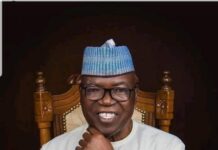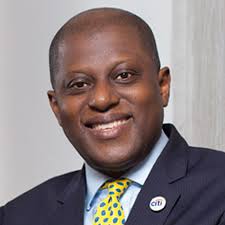The Initiative for Research, Innovation and Advocacy in Development (IRIAD) has called on stakeholders to take decisive actions that will foster gender equity and empower women across the African continent.
By Chimezie Godfrey
The Initiative for Research, Innovation and Advocacy in Development (IRIAD) has called on stakeholders to take decisive actions that will foster gender equity and empower women across the African continent.
The Director, IRIAD-THE Electoral Hub, Princess Hamman-Obels in a statement in commemoration of the Pan-Africam Women’s Day, commended significant progress made towards gender equity and women’s empowerment in Africa.
She celebrated women across the continent who have made giant strides in fighting and standing for the cause of women.
Hamman-Obels noted that the Pan-African Women’s Day serves as a vital platform to celebrate the contributions of women across the continent while also addressing the ongoing challenges they face.
According to her, it is an opportunity to recognize women’s significant roles in various sectors, advocate for continued change, promote solidarity among women, and inspire action towards gender equity.
She therefore urged governments to prioritize funding and resources for girls and women’s education across the continent, among other demands.
She said,”As we celebrate Pan-African Women’s Day, IRIAD calls upon the following stakeholders to take decisive actions that will foster gender equity and empower women across the continent.
“Governments: Governments should prioritize funding and resources for girls and women’s education at all levels. This includes not only primary and secondary education but also vocational and higher education to ensure safety and access to educational institutions for all girls.
“n addition, governments must strengthen the legal framework and support services that aim to protect women and girls from violence and discrimination. This includes implementing and enforcing laws against sexual violence, providing shelter to survivors, and ensuring access to justice.”
She urged civil society organizations to engage in advocacy activities that highlight the importance of investing in women’s rights and gender equality.
Hamman-Obels also tasked educational institutions on developing programs that will address the unique challenges of girls, especially in rural and marginalized communities.
“Civil society organizations play a key role in influencing policies that support gender budgeting and planning. They should engage in advocacy activities that highlight the importance of investing in women’s rights and gender equality.
“Conducting community information campaigns is essential to change society’s attitude toward gender-based violence and discrimination. These campaigns can educate communities about women’s rights and the importance of gender equality.
“Educational institutions should develop programs that address the unique challenges of girls, especially in rural and marginalized communities. This includes grants, tuition, and safe transport to schools. Also, incorporating gender studies into the curriculum can increase student awareness and understanding.,” she said.
According to her, community leaders and Individuals: should stand with educators and policymakers to advocate for gender equity and women’s empowerment. Grassroots movements can amplify voices and bring about local change.
“On this Pan-African Women’s Day, IRIAD reaffirms our commitment to advocating for policies and programs that support women’s rights and gender equity.
“We will continue to partner with stakeholders to address the challenges facing African women and girls and to amplify their voices and leadership.
“We will in particular engage in activities to ensure the passage of Nigeria’s Women’s Special Seats Constitutional amendment,” she said.
Hamman-Obels decried lack of implementation of the 35% affirmative action for women in appointive and elective positions in Nigeria.
“In Nigeria, Pan-African Women’s Day is particularly significant as it aligns with the ongoing efforts to improve the status of women and girls in the country.
“Despite notable progress, Nigerian women still face numerous challenges, including limited access to education, economic opportunities, and healthcare services and exclusion in politics, political representation, leadership and governance.
“For example, there is the National Gender Policy, adopted in 2006 and revised in 2021 aimed to promote gender equity and women’s empowerment, and the landmark judgement on 35% affirmative action for women in appointive and elective positions, yet implementation remains an issue,” she said.




